Oh, you thought that calendar on your phone was accurate, did you? You thought 2018 was DONE WITH. OVER. (Hurrah)?
Whoops. The fact is that over the following weeks and months, you will be reliving all of your financial decisions from 2018 while we put together your tax return.
We can’t go back and undo any bad decisions, but we can certainly help you recover from them.
And also, in case you’re wondering, yes, the government shutdown might affect tax season. We’re still waiting on this one, with you. The IRS *just* announced that they WILL be issuing refunds during the shutdown, but it is yet to be seen how effective this will be. The filing deadline might even be impacted, as yet to be determined.
But you should make every effort to get your returns filed as early as possible, especially if you are expecting a refund. There are many reasons for this, from preventing fraud to simple peace of mind.
And of course, you already have an expert San Diego tax professional in your corner who can help with that.
Or you can do all of this on your own.
It can take you a LONG time (if you file yourself), or you can press that easy button and allow us to do it all on your behalf.
Either way, we’re beginning this process, and we’re looking forward to walking with you through it.
It might even be … fun?
What Do I Need To File My Taxes For 2019? Here’s Darryl A. Hale, EA, MBA, MST’s Checklist
“Scar tissue is stronger than regular tissue. Realize the strength, move on.” – Henry Rollins
With all of the changes every year (and, of course, that’s especially true THIS year), filing your taxes on your own is not for the faint of heart. That’s even with nice-looking softwares on the market which purport to make it easy for you.
But that’s what we’re here for. Let us make it easy for you. If you’re asking yourself, “What do I need to file my taxes?” we’ve got you covered.
Below is a list of what you will need during the tax preparation process. Not all of them will apply to you — probably MOST will not. Nonetheless, it’s a useful checklist.
Before you get overwhelmed: yes, this is a long list — but it’s the unfortunate reality of our tax code that it’s not even comprehensive! But these items will cover 95% of our clients. Really, this is for ensuring that we’re able to help you keep every dollar you can keep under our tax code.
Also note: Certain deductions went away this year, that we’re used to handling on behalf of our clients. And some that you might be used to as well. This list has changed a little, and I’ve notated additional changes coming down the pike.
But again … we will be your guide. That’s what we’re here for.
Even if for some strange reason you won’t be using our cost-effective services this year, feel free to use this list as a handy guide…
Personal Data
Social Security Numbers (including spouse and children)
Child care provider tax I.D. or Social Security Number
Employment & Income Data
W-2 forms for this year
Tax refunds and unemployment compensation: Form 1099-G
Miscellaneous income including rent: Form 1099-MISC
Partnership and trust income
Pensions and annuities
Alimony received
Jury duty pay
Gambling and lottery winnings
Prizes and awards
Scholarships and fellowships
State and local income tax refunds
Unemployment compensation
Health Insurance Information
NOTE — despite the passage of tax reform that changes this information for future tax years, we still need it for 2018 taxes.
* All 1095-A Forms from Marketplace providers (if you purchased insurance through a Marketplace)
* Existing plan information (policy numbers, etc.)
* If claiming an exemption, your unique Exemption Certificate Number
* Records of credits and/or advance payments received from the Premium Tax Credit (if claiming)
Homeowner/Renter Data
Residential address(es) for this year
Mortgage interest: Form 1098
Sale of your home or other real estate: Form 1099-S
Second mortgage interest paid
Real estate taxes paid
Rent paid during tax year
Moving expenses (note: only applies if you were in the armed forces in 2018)
Financial Assets
Interest income statements: Form 1099-INT & 1099-OID
Dividend income statements: Form 1099-DIV
Proceeds from broker transactions: Form 1099-B
Retirement plan distribution: Form 1099-R
Capital gains or losses
Financial Liabilities
Auto loans and leases (account numbers and car value) if vehicle used for business
Student loan interest paid
Early withdrawal penalties on CDs and other fixed time deposits
Automobiles
Personal property tax information
Department of Motor Vehicles fees
Expenses
Gifts to charity (receipts for any single donations of $250 or more)
Unreimbursed expenses related to volunteer work
Investment expenses
Job-hunting expenses
Education expenses (tuition and fees)
Child care expenses
Medical Savings Accounts
Adoption expenses
Alimony paid (note: this deduction will no longer be in place in 2019)
Self-Employment Data
Estimated tax vouchers for the current year
Self-employment tax
Self-employment SEP plans
Self-employed health insurance
K-1s on all partnerships
Receipts or documentation for business-related expenses
Farm income
Deduction Documents
State and local income taxes (note: $10,000 limit on these for 2018)
IRA, Keogh and other retirement plan contributions
Medical expenses
Other miscellaneous deductions
An important thing to understand is that we will guide you through the process, and that although much has changed this year, we are on top of these changes on your behalf.
We’re here to help. Let me know if you have any questions.
Warmly,
Darryl A. Hale, EA, MBA, MST
Top Hat Tax & Financial Services
